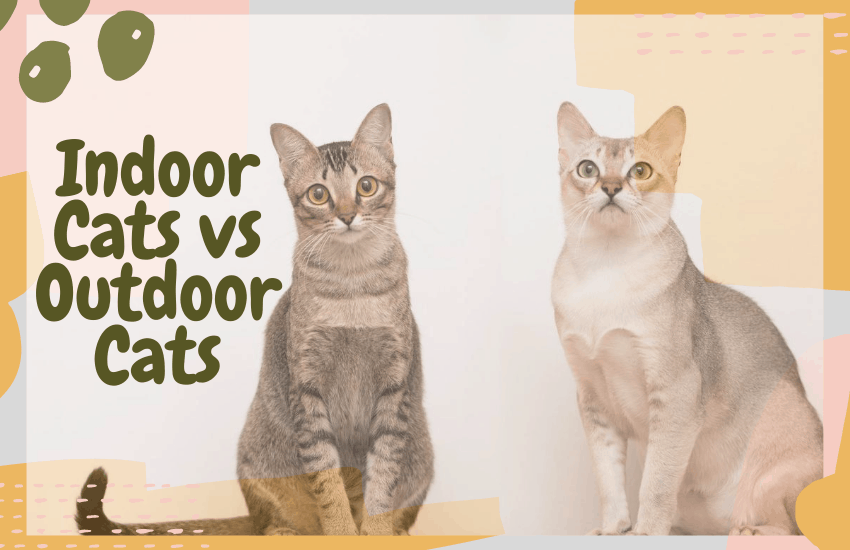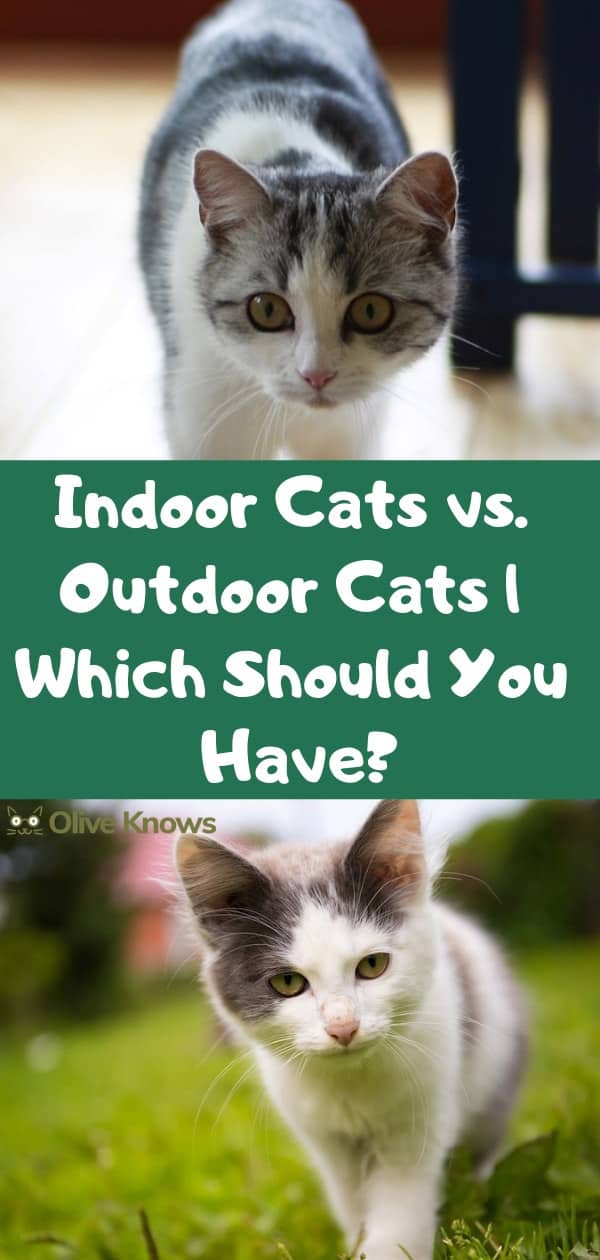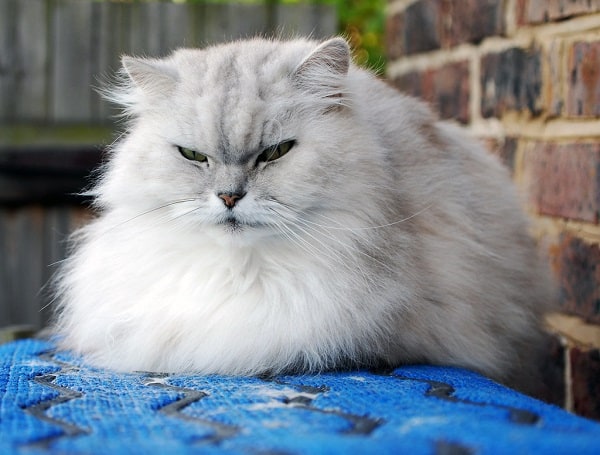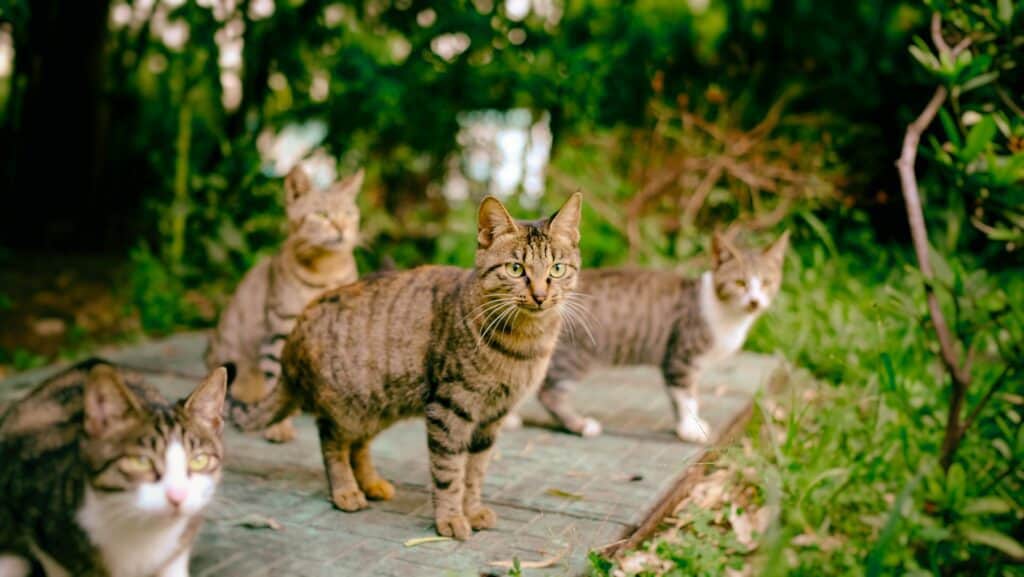
You are about to get a cat and you have a dilemma – let it roam freely or make it an “inside cat”. It’s an important choice to make that will greatly affect your pal’s life so we have prepared for you some points to consider before making a final decision.

Table of Contents
Indoor Cats
The majority of domestic cats in the US stay inside. This is contrary to the case in the UK, where 90% of domesticated felines are free to roam the outdoors. There are reasons for this difference, and here we are going to lay out the advantages of keeping your cat indoors no matter where you are located.
No Natural Enemies
Studies show that indoor cats live on average 15-17 years, while the life proximity of street cats is around 3-4 years. One of the main reasons for this difference is the physical safety of homes. Inside cats are not threatened by natural predators such as dogs, coyotes and, in the case of some US states, alligators. Apart from not being prey, indoor cats are also safe from getting into fights with other cats who might be more experienced fighters than your pal.
No Traffic
Another reason why keeping your cat is safer indoors is that there are no cars. The National Transport Safety Association reports that each year close to 5 million cats die after getting struck by vehicles. Speaking of cars, cats tend to hide over tires and under car hoods. Even if you keep your pal indoors, check your car before you get in, in case Mittens cozied up over a tire or under the hood.
Fewer Diseases
When you keep your cat indoors, it’s easier for you to notice symptoms of developing health issues. This will give you more time to react, which in many cases is detrimental to keeping your cat alive and well. On top of that, by keeping your tom indoors, there is a much lesser chance for it to contract contagious diseases or parasites. Feline leukemia, feline AIDS, and respiratory problems are easily spreadable from cat to cat and quite deadly. Other diseases such as fleas, ticks, worms, and ear mites are also nasties that can be avoided if you keep your cat indoors.
Supporters of “outdoor” cats often point out several disadvantages of keeping felines strictly indoors.
It’s Unnatural
One of the main arguments against keeping cats inside is that they are born to be free. They need to hunt and do “outdoorsy” stuff which keeps them in top condition and provides them a balanced and happy life.
Yes, it’s natural for cats, like for any other animal, to live out in the wild. It’s also natural for people to walk barefoot yet we have invented the shoes. Even if an indoor cat loses its hunting instincts why would this be an issue? These instincts are meant to keep the cat alive. Once a feline becomes domesticated, it no longer needs to hunt for food or get away from its natural enemies.

The Fat Cat
Sadly, in many cases, indoor cats do get obese which causes a myriad of issues. However, the fault is not in keeping the cat indoors but in feeding it an inappropriate diet. If your cat is gaining more weight than what’s healthy, there are three steps that you should take – rule out any medical conditions, change its diet, and make it move more.
The first step obviously means that you should take your cat to the vet.
The second step includes a diet change, which will ideally be supervised by a vet. There is plenty that you could on this matter. Switch from free-feeding, reduce portion size, and feed your cat food that’s specially formulated for indoor cats.
There are plenty of solutions for the third step as well. To make your cat move more you can do as little as buying a cat toy or go big and build a whole playground. The latter is not as hard as it sounds. There are quite a few options for you to choose from – including ready-to-assemble sets. Just don’t get angry if your cat prefers to play with the toy box instead of the actual toy – cats are like that.
Outdoor Cats
“Keeping your cat indoors is cruel.” One can often hear this argument from both cat owners and vets. In fact, the “let your cat go outside” camp has quite a few members. Here are the main arguments for letting a cat go out as it pleases.
It’ll Keep its Instincts
When your cat enjoys the outdoors, it needs to provide for itself. Cats are territorial animals but can stray away quite a bit making it futile to get back home to get food. So, if your cat spends time outside chances are that it will hunt for food as if it was in the wild. This will have a positive effect on your pet because it will help it maintain ideal weight by staying active and without indulging in a feast of manufactured cat food.
Fresh Air and Sunshine
Outdoor cats breathe fresh air, instead of the air in the home which can go stale without proper ventilation. However, with the ever-increasing urbanization, you must consider your surroundings. With pollutants making their way everywhere many urban zones have such a poor air quality that letting your cat breathe “fresh air” might do more harm than good.
As for sunshine, it is an important component in maintaining your furry friend’s health. Through sun rays cats grow luscious fur and get essential vitamins. Depending on your home’s layout keeping your cat indoors might completely deprive it of sun exposure. Beware if you live in a particularly sunny area because skin cancer is a thing even for cats.

Less Litter and Less Smell
Yes, letting your cat go outside means dealing with less litter. It also means that there will be less cat smell.
While there are some advantages to having an outdoor cat, we think that they pale before the disadvantages.
Dangers
Dogs, coyotes, other cats, and even alligators are real dangers that outdoor cats could face in many states. And let’s not forget that grumpy not-a-cat-person neighbor of yours that might get too fed up with your furry pal’s preference for using his porch as a toilet.
We already mentioned how dangerous cars are for cats. Not only are car hits quite common, but there is also the danger that your cat might snuggle under a tire or get baked from the engine.
Cats also have the habit of climbing trees only to realize too late that they can no longer get down. Days could go by before somebody reacts and helps your cat. If your pal decides to manage it on its own, nasty injuries can happen.
By letting your cat go outdoors, you also run the risk of somebody snatching it up. Yes, there are people like that.
Diseases and Parasites
There are plenty of diseases and parasites that roam the outdoors. Some of them can even be contracted by humans or other pets in the same household.
No Control
When your cat spends time outdoors, this is the time that you cannot exercise control over your pal. You can’t know if it ingested something dangerous and there is a lesser chance of noticing symptoms of developing health issues.
What to Consider
We’ve covered most pros and cons of keeping your cat indoors or letting it roam outside, but all this information probably left you with some questions that you need to be answered before you can make a decision. What do you need to keep in mind when you decide between having an “indoor” or an “outdoor” cat?
Location
One of the main concerns when it comes to outdoor cats is the dangers that creep from every corner. If you live in a heavily urbanized area, this means lots of cars, dogs, other cats, contagious diseases, and grumpy neighbors. On the other hand, living in the country means that an outdoor cat might have to deal with predators. If you do decide to let your cat go outdoors, the least you should do is get it chipped, so in case your furry friend gets lost it can be traced back to you. And try to get your cat indoors at least for the night because this is when most accidents happen.
Lifestyle
Do you spend a lot of time out of the home due to long shifts, frequent travel or for any other reason? If this is the case, keeping your cat indoors (or having one) might not be a wise decision. Most cats need affection, and when they don’t get it for long periods of time, this stresses them out, causing them to throw destructive fits.
Think about the time that you can allocate to a pet and if it isn’t much, consider other options. If you insist on getting an indoor cat despite your busy schedule at least take due care to ensure that you provide your pet with some excitement. Getting some cat toys, a scratch post, or even a cat condo can keep your pal entertained while you are away. All these amenities, however, should complement the personal time that you spend with a cat, not substitute it.
One of Each
So, you’ve read this post and still can’t decide whether you want an indoor or an outdoor cat. This has left you with the option of getting both an inside and an outside fur friend. But how do you make it work?
Well, cats can get along if you don’t rush their introduction to each other. It’ll be easier if you could bring them home at the same time so neither one feels as if the other is an invader.
Also, you need to consider logistics. Having more than one cat means buying more than one set of food and water bowls, more than one litter box and possibly several sets of toys. Plus, you need to consider getting cat doors that will allow the outdoor cat to come in and out as it pleases without risking losing your “indoor” pal. Also, keep in mind that the outdoor cat runs a much higher chance of contracting a disease that can spread to the other cat. Preventative care is a must whatever option you choose.
There you have it – a brief guide to choosing an indoor or an outdoor cat (or both). There is plenty to consider when making such a choice, so take some time to think about it. Our advice is to keep your cat indoors and provide it with enough entertainment to keep it from getting bored and destroying your property. In any case, consider your lifestyle and make the appropriate choice.


Leave a Reply